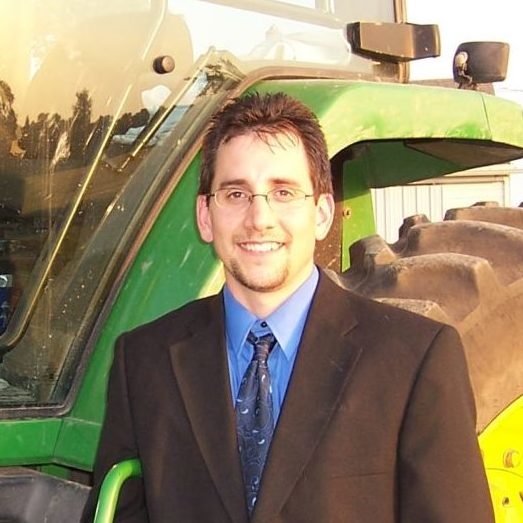John Schwarz

Law Firm
Schwarz Law Office PC, IN, MI
- Practices agricultural, business, and general law
- Licensed to practice in Indiana and Michigan
- Represents farmers, businesses, individuals
John says
“People in rural areas need help too.”
John’s Background
For John Schwarz, finding agricultural law was a homecoming in a sense. After growing up on a farm in northeastern Indiana, John studied mechanical engineering and then went to law school to focus in patent law, but found that it couldn’t hold his interest over the long term. Luckily, during the time that John was beginning to wish for something else to do, he landed an internship with the Indiana Farm Bureau office and noticed that very few legal professionals had much knowledge of agriculture and farming. With his first-hand experience and in-depth knowledge, John realized that he could fill a gap for an underserved group—farmers and rural areas—and practice a wider range of law than just intellectual property.
John now operates a solo practice on his family’s corn, wheat, and soybean farm. As his law practice has grown, John has been able to step away from farming a bit and some neighbors now help with the management and labor. However, John continues to be active on the farm and feels that this is an important part of relating to his clients—he references a recent study showing that farmers consult attorneys about 4 times less often than other businesses, and that the most common reason is a perception that lawyers don’t understand the needs of farms. John serves primarily a rural population across most of the state and into Michigan, about 85 percent farmers and 15 percent non-farmers. The practice keeps him busy with a wide range of types of law—from business formation and contracts to estate planning and federal conservation compliance. “There’s a lot of help that farmers need,” John says, but notes that he enjoys working with farmers and non-farmers alike.
Building for the Future
When he’s not busy with clients or working on the farm, John is building a national nonprofit network of attorneys who focus in farm and agricultural law. The Farmers Legal Assistance Network is in early stages, but its vision is to be able to refer farmers to attorneys all over the country who have the background and expertise to help them with farm-related issues. Many rural areas have seen a decrease in the number of practicing attorneys, and “people just assume there’s nobody out there,” says John, so providing a way for farmers to connect with attorneys who can help them with their businesses will be an important way to support agriculture across the United States.
John’s background in farming over his lifetime prepared him well to serve farming and rural clients. As he’s continued to be involved in his family’s farm, he’s been able to “keep up with the changes in agriculture,” and to understand how farms work and what they need. John hasn’t worked at firms that specialize in agricultural law, so he is largely self-taught in how to apply his legal knowledge to a farm context—although he has “met some very helpful people along the way,” in fields such as accounting, insurance, and others. Especially as he was getting started in an agricultural practice, he spent time adapting standard documents to agricultural applications—“combining the two to have farm knowledge in a legal setting.” For example, standard operating agreements may need some tailoring to be most useful for farm businesses, which often have particular concerns such as land and equipment or multiple owners in different capacities.
To new attorneys, John says, “there is definitely a need.” Farms are facing an increasingly difficult market situation, with greater competition and high yields combining to depress prices, and “the more farmers are up to par legally the better they will do.” To serve farm clients and practice agricultural law, attorneys who haven’t grown up on a farm will need to develop familiarity in other ways, whether through reading, workshops, or personal contacts. “Get the most farm knowledge you can,” John advises, “and merge that with the legal knowledge, and there you go.”
The Center for Agriculture and Food Systems is an initiative of Vermont Law School, and this toolkit provides general legal information for educational purposes only. It is not meant to substitute, and should not be relied upon, for legal advice. Each farmer’s circumstances are unique, state laws vary, and the information contained herein is specific to the time of publication. Accordingly, for legal advice, please consult an attorney licensed in your state.
